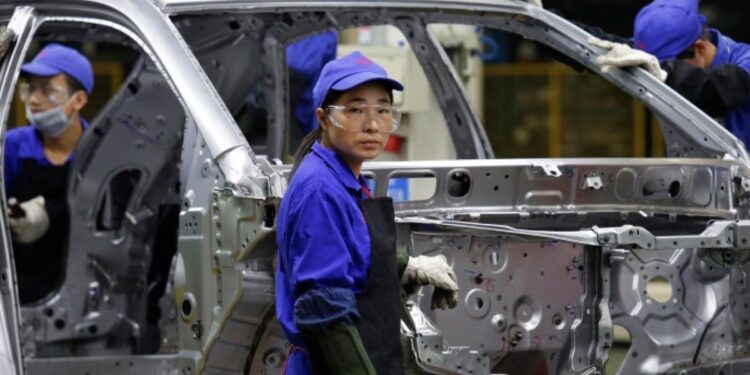The European Union is preparing to impose tariffs on electric cars imported from China, a move aimed at countering what it sees as unfair trade practices by Beijing, Bloomberg reported.
This decision comes – according to the agency – at a time when Europe is facing a flood of cheap Chinese electric cars, causing major turmoil in the market.
However, the proposed tariffs are generating controversy and raising concerns about potential retaliation from China and its impact on European consumers.
Procedures for implementation
The European Commission is scheduled to inform China’s electric vehicle manufacturers early next week about imposing temporary tariffs starting July 4, Bloomberg reported.
These tariffs are expected to raise import duties to more than the current 10%, and target companies such as BYD, SAIC, and Geely.
The move is part of a broader effort by Brussels to address market-distorting practices, including subsidies provided by Beijing to its auto industry, according to the agency.
According to a Bloomberg report, the European Commission found “sufficient evidence” that Chinese electric vehicle imports benefit from subsidies such as direct money transfers, tax breaks, and the provision of goods or services at below market prices.
Anticipated effects
The tariffs are intended to help European automakers defend their markets, but they may also affect Western manufacturers that produce cars in China and export them to Europe, such as Tesla and BMW, according to the German news agency.
Ferdinand Dudenhofer, director of the CAR Institute for Automotive Research, warned that about 14% of electric cars sold in Germany are imported from China.
In the first four months of 2024, 111,000 electric cars were registered in Germany, including 15,000 imported from China.
Dudenhofer pointed out that these numbers include not only Chinese brands, but also cars produced by European companies in China, such as Dacia Spring, the cheapest electric car in the European market.
He warned that imposing high customs duties on these cars could lead to higher prices and reduced demand for relatively affordable models.
Possible retaliation
China, the world’s largest producer of electric cars and electric vehicle batteries, is aggressively expanding its market share in Europe.
The tariffs proposed by the European Union are seen as an attempt to prevent a repeat of the collapse of the solar industry, in which state-backed Chinese competitors outpaced European manufacturers, Bloomberg said.
However, experts warn that tariffs could lead to retaliatory measures from Beijing.
China has indicated that it may impose tariffs of up to 25% on imports of European cars with large engines, affecting brands such as Mercedes-Benz, Porsche and BMW. In addition, Beijing could target European aviation, agricultural goods and dairy products, and even restrict exports of materials vital to the production of electric cars, such as rare earth elements and lithium, the agency said.
Economic and environmental concerns
The imposition of tariffs on Chinese electric vehicles has sparked debate about the potential economic and environmental impacts.
Dudenhofer believes that tariffs on environmentally friendly products could hinder the transition to a cleaner economy and disrupt important industrial exchanges with China. He added, “Imposing punitive customs duties on electric vehicles would be a big mistake that would pollute the climate and hinder important industrial exchange with China.”
European automakers are divided on the issue. While some, like Stellantis, support measures to protect domestic manufacturers, others, including Mercedes-Benz and Volkswagen, warn of protectionist policies that could delay the shift to a greener economy, Bloomberg reported.
Herbert Diess, former CEO of Volkswagen, who now serves as Chairman of the Board of Directors of Infineon Technologies, stressed that escalating trade conflicts could harm the global economy.



